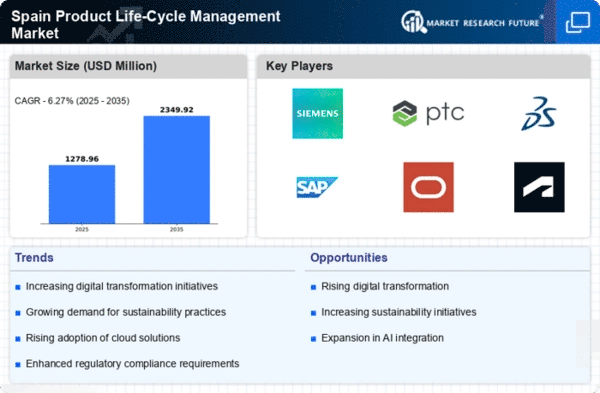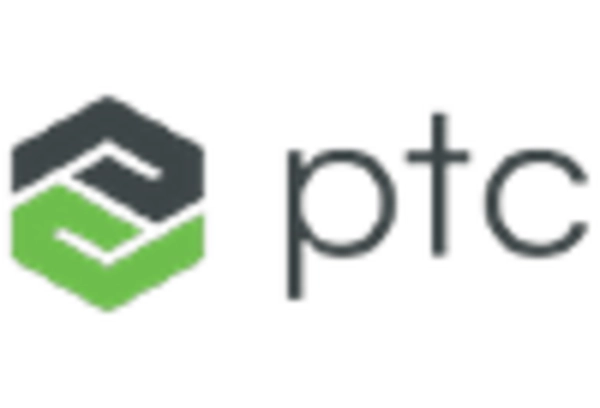Adoption of Cloud-Based Solutions
The shift towards cloud-based solutions is significantly impacting the product life-cycle-management market in Spain. Organizations are increasingly migrating their product management processes to the cloud, which offers scalability, flexibility, and cost-effectiveness. This transition allows companies to access real-time data and collaborate seamlessly, regardless of geographical constraints. By 2025, it is projected that cloud-based product life-cycle-management solutions will account for over 40% of the market share, reflecting a growing preference for these technologies. The ability to leverage cloud infrastructure is becoming a key driver for businesses aiming to enhance their product life-cycle strategies.
Focus on Data-Driven Decision Making
In Spain, the product life-cycle-management market is increasingly influenced by the emphasis on data-driven decision making. Organizations are leveraging analytics and big data to inform their product strategies, enabling them to make informed choices throughout the product life cycle. This shift towards data-centric approaches allows companies to better understand consumer preferences and market trends, ultimately leading to improved product offerings. As a result, the market is expected to witness a growth rate of around 7% in the coming years, as businesses invest in technologies that facilitate data collection and analysis. The ability to harness data effectively is becoming a critical factor for success in the product life-cycle-management market.
Increased Collaboration Across Departments
The product life-cycle-management market in Spain is benefiting from enhanced collaboration across various departments within organizations. As companies recognize the importance of cross-functional teamwork, they are adopting integrated platforms that facilitate communication and information sharing. This collaborative approach not only streamlines processes but also fosters innovation, as diverse perspectives contribute to product development. In 2025, it is anticipated that organizations focusing on collaborative product life-cycle management will see a 10% increase in efficiency. This trend underscores the necessity for businesses to break down silos and work cohesively, thereby driving growth in the product life-cycle-management market.
Rising Demand for Efficient Product Management
The product life-cycle-management market in Spain is experiencing a notable increase in demand for efficient product management solutions. Companies are recognizing the need to streamline their processes to enhance productivity and reduce time-to-market. This trend is driven by the competitive landscape, where businesses strive to maintain an edge through innovation and responsiveness. In 2025, the market is projected to grow at a CAGR of approximately 8.5%, reflecting the urgency for organizations to adopt effective product life-cycle strategies. As firms seek to optimize their operations, the integration of advanced software tools and methodologies becomes essential, thereby propelling the growth of the product life-cycle-management market.
Growing Importance of Customer-Centric Approaches
In the evolving landscape of the product life-cycle-management market in Spain, there is a marked shift towards customer-centric approaches. Companies are increasingly prioritizing customer feedback and preferences throughout the product life cycle, which is essential for developing products that resonate with target audiences. This trend is likely to result in a 9% increase in customer satisfaction rates, as organizations adapt their strategies to align with consumer needs. By focusing on customer insights, businesses can enhance their product offerings and improve market positioning, thereby driving growth in the product life-cycle-management market.
















